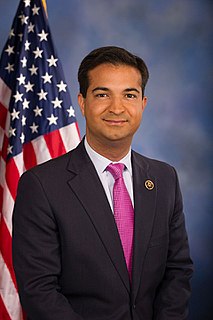A Quote by Rush Limbaugh
United States foreign policy, which includes national security, is literally disintegrating before our eyes.
Related Quotes
Actually, the phrase "national security" is barely used until the 1930s. And there's a reason. By then, the United States was beginning to become global. Before that the United States had been mostly a regional power - Britain was the biggest global power. After the Second World War, national security is everywhere, because we basically owned the world, so our security is threatened everywhere. Not just on our borders, but everywhere - so you have to have a thousand military bases around the world for "defense."
Foreign policy always has more force and punch when the nation speaks with one voice. To remain secure, prosperous, and free, the United States must continue to lead. That leadership requires a president and Congress working together to fashion a foreign policy with broad, bipartisan support. A foreign policy of unity is essential if the United States is to promote its values and interests effectively and help to build a safer, freer, and more prosperous world.
I think what we need to do is understand our number one obligation is to act in the national interest of the United States of America. I believe it is in our national interest to see democracy take hold on the island of Cuba. And so we examine our foreign policy, including all the changes that President Obama made, in that lens and through that lens.
Another longstanding foreign policy flaw is the degree to which special interests dictate the way in which the "national interest" as a whole is defined and pursued.... America's important historic relationship with Israel has often led foreign policy decision-makers to defer reflexively to Israeli security assessments, and to replicate Israeli tactics, which, as the war in Lebanon last summer demonstrated, can turn out to be counter-productive.
It's a moral imperative, it's an economic imperative, and it is a security imperative. For we've seen how spikes in food prices can plunge millions into poverty, which, in turn, can spark riots that cost lives, and can lead to instability. And this danger will only grow if a surging global population isn't matched by surging food production. So reducing malnutrition and hunger around the world advances international peace and security - and that includes the national security of the United States.

































